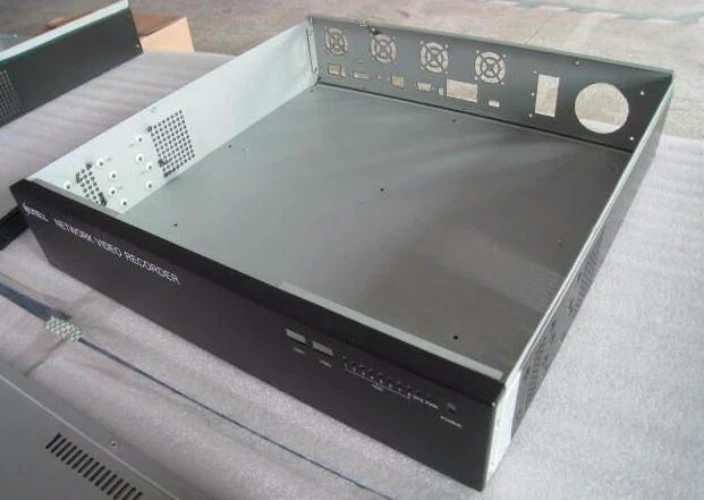When it comes to selecting enclosures for electronic or mechanical equipment, one of the primary decisions engineers face is choosing between metal and plastic enclosures. Each material offers unique advantages and considerations, making it essential to weigh the factors carefully to make the right choice for a particular application.
Precision Metal enclosures:
- Durability: Precision Metal enclosures, typically constructed from materials like steel, aluminum, or stainless steel, are known for their exceptional durability. They offer robust protection against physical impact, environmental hazards, and tampering, making them ideal for applications in harsh or demanding environments.
- EMI/RFI Shielding: Precision Metal enclosures provide excellent electromagnetic interference (EMI) and radio frequency interference (RFI) shielding. Their conductive properties help to block electromagnetic waves, ensuring the integrity and reliability of sensitive electronic components housed within the enclosure.
- Temperature Resistance: Precision Metal enclosures often exhibit superior temperature resistance compared to plastic enclosures. They can withstand high temperatures without warping or melting, making them suitable for applications where heat dissipation is a concern.
- Security: Precision Metal enclosures offer enhanced security features, such as robust locking mechanisms and tamper-resistant designs. They provide a higher level of protection against unauthorized access and vandalism, making them suitable for applications requiring stringent security measures.
Plastic Enclosures:
- Cost-Effectiveness: Plastic enclosures are generally more cost-effective than Precision Metal enclosures, making them a preferred choice for budget-conscious projects. The lower material and manufacturing costs contribute to overall project savings without compromising on quality or functionality.
- Corrosion Resistance: Unlike precision metal enclosure, plastic enclosures are inherently resistant to corrosion and rust. They are suitable for use in environments where exposure to moisture, chemicals, or corrosive substances is a concern, such as outdoor installations or chemical processing facilities.
- Design Flexibility: Plastic enclosures offer greater design flexibility, allowing for complex shapes, molded features, and customization options. They can be easily molded or machined to accommodate specific requirements, including integrated mounting features, cable glands, and ventilation slots.
- Lightweight: Plastic enclosures are significantly lighter than Precision Metal enclosures, making them easier to handle, transport, and install. This lightweight characteristic is particularly advantageous for portable or handheld devices and applications where weight reduction is a priority.
Choosing Between Metal and Plastic Enclosures:
When deciding between metal and plastic enclosures, it’s essential to consider the specific requirements and constraints of the application:
- Environmental Conditions: Assess the operating environment, including temperature extremes, moisture levels, and exposure to corrosive substances, to determine the appropriate level of protection needed.
- EMI/RFI Considerations: If the equipment is sensitive to electromagnetic interference, Precision Metal enclosures may be preferred for their superior shielding properties.
- Budget and Cost: Evaluate the project budget and cost constraints to determine the most cost-effective enclosure solution without compromising on quality or performance.
- Design Requirements: Consider any specific design requirements, such as size constraints, mounting options, or customization needs, to select an enclosure that best meets the application’s specifications.
In conclusion, both metal and plastic enclosures offer distinct advantages and considerations. By carefully evaluating factors such as durability, cost, environmental conditions, and design requirements, engineers can make an informed decision to choose the right enclosure for their application, ensuring optimal protection, functionality, and performance.










+ There are no comments
Add yours